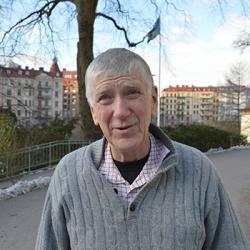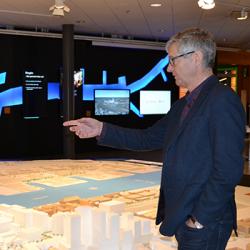Three voices about the Urban Futures Open Research School
Three participants in Urban Futures Open Research School share their experiences and what it means to have a research perspective on practical work in a municipality.
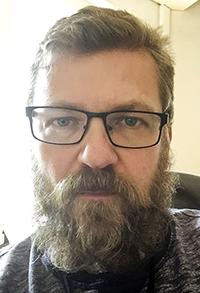
Fredrik Högberg, Environment Administration, City of Gothenburg
You took part in the first course at Mistra Urban Futures Research School – Why?
The short answer is that I thought the subject was interesting. It should be added that in some respects the course tied in well with my normal work at the Environment Administration. It provided good skills development and I nurtured a dream of becoming a researcher somewhere within me ...
What did you get out of the course?
The best thing was that I gained a new perspective on my work and our challenges in the city. The course gave me the chance to look upwards to some extent in my work, but it’s difficult to combine a real research perspective with more traditional administrative work. I think it’s important to do that but it’s not that easy.
Do you see any “wicked” problems in your work which could be solved by co-produced research?
I am convinced that we could use co-produced research more in the management world. One area that might be of interest is the large gulf between goals or objectives and actual results. This is certainly not anything new under the sun, but in these times of societal challenges, it’s very evident that our high ambitions do not have the expected impact on our activities and in reality.
What does it mean to have a research perspective on practical work in a municipality?
It may mean that new groups of people will find administrative work interesting. I’m not saying that the municipalities lack the right expertise but that a research perspective can highlight an ambition that has historically not been clearly expressed.
Is it important for there to be a research school at Mistra Urban Futures?
I really think so!
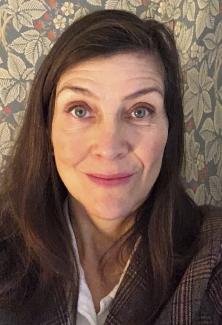
Ylva Berglund, Culture Administration, City of Gothenburg
You took part in the first course at Mistra Urban Futures Research School – Why?
To gain more knowledge and inspiration. I have worked on several pilot studies linked to culture and the city’s transformation processes. I would like to understand more about the field and gain new perspectives.
What did you get out of the course?
I got to experience the dedication and knowledge of the lecturers and other students – and in particular was able to listen to others and had to express myself in English at an academic level. That’s something I never do during a normal working day.
Do you see any “wicked” problems in your work which could be solved by co-produced research?
As an employee at the Museum of Gothenburg I really see a need to work with the university and various grass-roots movements and citizens’ groups. When it comes to the role of culture in urban development, most of the work still has to be done and there are a number of complex problems to resolve. What we have done so far has been pioneering work in which we have highlighted a number of cultural values to take into account in order to contribute to the development of a sustainable city. It is absolutely invaluable to view things in a scientific way and to collaborate with the academic world.
What does it mean to have a research perspective on practical work in a municipality?
It means a great deal. If we are going to build a sustainable city, break down the segregation and create a more equal Gothenburg with a good service for its citizens, then we need knowledge. I find it hard to believe that this is only the case in the cultural sector.
Is it important for there to be a research school at Mistra Urban Futures?
Yes, it is in my opinion. I’m not aware of any other opportunities for a practitioner like me to get involved in this type of collaboration. So to ask a question in return – where else would it take place?
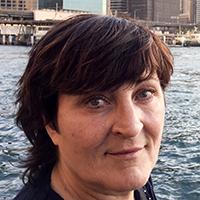
Eva Stockfelt, Sports and Associations Administration, City of Gothenburg
You took part in the first course at Mistra Urban Futures Research School – Why?
Apart from an interesting and challenging course structure, from practice to theory, that I was interested in taking part in, I think we need to enhance the theoretical training associated with the practical work that I and many other officials undertake in the city. For my part I work on urban development focusing on the long-term planning of sports and health and wellness facilities.
It was also tempting because I wanted to gain an understanding of transformation processes and how they can guide a sustainable city through the complex and rapid transformation work that Gothenburg and its citizens are in the midst of. I think that co-produced research is absolutely necessary to solve the complex and wicked issues associated with societal change.
What did you get out of the course?
In-depth knowledge and a greater understanding of the complexity of urban development. Co-produced processes and transdisciplinary theories allow us to gain greater insights into and obtain suitable tools to allow us to work more sustainably at earlier stages and produce good results in the future.
Do you see any “wicked” problems in your work which could be solved by co-produced research?
In my role as an operational developer at the Sports and Associations Administration we face issues that could be termed “wicked” problems on a daily basis. For example, urban planning often fails to consider the need to provide space for organisations in civil society – premises for associations’ activities, sports halls and other areas for physical activities, play and games etc. These needs are often set against other needs, for housing, schools andpreschools, offices, commercial premises and entertainment areas.
What does it mean to have a research perspective on practical work in a municipality?
Systematics and an understanding of what is happening are important insights. In order for understanding and insights to be as sustainable and as robust as possible, these should be anchored and based on research and experiences which are well known and tested.
Is it important for there to be a research school at Mistra Urban Futures?
The answer to that question is of course yes. Urban development, people living in Gothenburg s and future generations would gain much from the development of long-term collaboration between the City of Gothenburg and Mistra Urban Futures.
ABOUT MISTRA URBAN FUTURES OPEN RESEARCH SCHOOL
During 2017 Mistra Urban Futures’ Gothenburg platform launched an open research school that addresses both practitioners who work with so-called wicked challenges in their daily work and researchers which addresses such challenges in their doctoral studies. In autumn 2017 the first course was held, Co-production in Action - from practice to theory (2x7.5 credits), which was completely full. The course is about co-creation and transdisciplinary research as a way to deal with wicked or complex challenges, which often arise in urban development. These challenges must be solved in cooperation between many disciplines and across research and practice. Read more about the research school here.
2017 Annual report from the Göteborg Region Association of Local Authorities (GR)
Why is it important for municipalities to engage in a research and knowledge center such as Mistra Urban Futures? The latest annual report from the the Göteborg Region Association of Local Authorities (GR) answers this question. GR is one of the center's consortium partners in Gothenburg and was also one of the organizations that initiated the Centre. This article about the Research School is part of the annual report. Read the report here.






